- By Bashorun J.K. Randle
In the 1950’s, under the Colonial Government, Harold Cooper, the British Public Relations Officer, who was a friend of my father’s, went to great lengths in order to ensure that the airwaves between Lagos and Kano were free of disruptions (Cooper Road in Ikoyi was named after him). Consequently, the Nigerian Broadcasting stations in Lagos and Kano relayed exactly the same programmes. Indeed, most of the programmes were from the British Broadcasting Corporation [BBC].
The diversion into “Hausa Service” and Radio Kaduna came much later.
All over Nigeria, “Rediffusion” boxes were installed in homes in order to enable households to listen to the radio. The monthly rental fees were as little as five shillings.
I have no recollection of any home with more than one box around which the entire family would cluster to listen to the news early in the morning or in the evening.
There was no twenty-four hour service; and certainly no private radio stations. CNN; Sky News; Al Jazeera etc. did not exist. In essence, the staple diet of news in Lagos was exactly the same as in Kano. The colonial government also made sure that the “Daily Times” newspaper was available in Lagos and Kano on the same day. Harold Cooper’s task extended to showing films all over Nigeria, particularly schools; churches; and hospitals.
It was all part of an elaborate command and control of the communication channel. It was premised on the perception that if matters were reasonably calm in Lagos and Kano, the rest of the country would follow suit. All these were long before Nigerian Television Authority [NTA], not to talk of Channels; Silverbird; AIT etc. emerged.
Mind you, those who owned what was described as “wireless radio” could receive “BBC”, “Voice of America”; and the exotic music of “Congo Brazaville” directly.
Similarly, special attention was devoted to the railway line, between Lagos and Kano, which was amalgamated on October 3, 1912 (It was a joining of the Lagos-Minna railway line that was constructed between 1901 and 1911 and the Baro-Kano Railway line that was built by the government of Northern Nigeria between 1907 and 1911).
It is also instructive that right up till the 1980’s, there were only two entry points into (and exit points from) Nigeria. They were Lagos and Kano. Maybe demons, wizards and other flying objects were able to defy the restriction!!
For those who are communications historians, it would not escape them that at the height of its glory, the circulation of “Daily Times” newspaper was close to one million copies a day. Its stablemate, the “Sunday Times” when Gbolabo Ogunsanwo was both columnist (“Life With Gbolabo”) and editor regularly hit one million, five hundred thousand copies. However, “Wikipedia” insists that at its peak, “Daily Times” circulated nearly two hundred and seventy-five thousand copies a day while the “Sunday Times” distributed nearly half a million copies.
By way of comparison, the circulation “The Vanguard” and “The Punch” newspapers, which are reputed to be Nigeria’s most circulated newspapers distribute less than a quarter of what “Daily Times” circulated in its heydays.
What we read in Lagos was exactly the same as what was on the news stands/vendors in Kano on Sunday morning.
Eventually, both “Daily Times” under the leadership of the legendary Alhaji Babatunde Jose and Radio Nigeria were severely battered by the military bazookas. A subject for another day is the experience of Dr. Christopher Kolade the very professional and upright Director-General of Radio Nigeria during the S.D. Dimka coup of Friday 13th February, 1976 which led to the brutal assassination of the Head of State, General Murtala Mohammed and his aide-de-camp Lt. Akintunde Akinterinwa in cold blood early in the morning as they drove without special security to the office (Dodan Barracks).
Dr. Kolade was in the building when then Colonel Ibrahim Babangida surrounded “Radio Nigeria” with armoured tanks with orders from the Chief of Army Staff Major-General T.Y. Danjuma – Dimka must be captured even if it meant razing the station to ashes. Thankfully, Dr. Kolade is still alive to confirm the treachery of his subordinate Mr. Abdulkarim Zakari who was from Kano and was part of the coup as it was he who provided the coup plotters with the military music which the radio station was broadcasting. Zakari was executed along with the other coup plotters. He left behind a widow (from the Da Silva family who remain prominent in Lagos).
In a rare interview, Lt.-General T.Y. Danjuma GCON confirmed that his name was the second (after General Murtala Mohammed) on the Dimka list of those to be assassinated. Apparently, what saved him was that instead of driving by car to his office at “Defence Headquarters”, Marina, Lagos, he travelled by boat from his Ikoyi residence to a jetty on the Marina and just walked briskly to his office which was just a floor above the office of Major-General Iliya Bisalla who was his rival and alleged mastermind of the coup plot.
We are obliged to reflect on the dictum which President Barack Obama of the United States of America espoused when he visited Africa for the first time in 2009.
“What Africa needs are not strongmen but strong institutions.”
Alas, both “The Daily Times” and “Radio Nigeria” were strong institutions headed by strongmen – Alhaji Babatunde Jose and Dr. Christopher Kolade. The military literally blasted and bulldozed them anyway.
It bears repetition that in the years preceding Nigeria’s Independence, members of the Parliament (House of Representatives and the Senate) were part-timers. They were expected to have other means of livelihood. Hence, they were only paid stipends and sitting allowances – to cover accommodation and travelling expenses when they were in session in Lagos. Most of them found temporary accommodation in Lagos or “squatted” with friends and party members. The parliamentarians from the North were provided with “warrants” which enabled them to travel free of charge on the trains from Kano to Lagos and back.
That is a sharp contrast to what currently prevails. It was Senator Shehu Sani of Kaduna Central who spilled the beans: “Nigerian Senators Receive N13.5 Million ‘Running Cost’ Every Month”
“Mr. Shehu Sani, Senator representing Kaduna Central Senatorial District in the National Assembly has revealed he and his colleagues receive N13.5 million monthly as running cost.
The revelation by the Senator was the first time a member of the National Assembly will confirm speculations that Nigerian senators are earning N41.5 million quarterly as a running cost.
The Kaduna Senator who made the revelation in an interview he granted to The NEWS magazine said the running cost was in addition to the over N700,000 monthly consolidated salary and allowances of each member of the Senate.
The Senator said, “I think what we can say is that the running cost of a senator is N13.5 million every month,” the Senator said in response to the question on alleged bogus salaries and allowances of Nigerian lawmakers.
According to him, while there is no specific instruction on what the fund should be used for, lawmakers must provide receipts to back up their expenses from the running costs. He added that the running cost is in addition to funds earmarked for each senator for constituency projects.
“But what I am saying is that that money (N13.5 million per month) must be receipted for what you do with it. But what you are given to go and spend without any accountability is N750,000.00.
The constituency project itself is given on a zonal basis and almost every Senator will go with a constituency fund of about N200 million, but it is not the cash that is given to you.
You will be told that you have N200 million with an agency of government for which you will now submit projects equivalent to that amount. And it is that agency of government that will go and do those projects for you.
Now, the corruption comes when the projects are not done and the money is taken. But right now, it is difficult to do that because NGOs and transparency groups have come into it. They track every allocation made to you and where they are being used.
So, it’s becoming difficult for what used to happen in the past to happen now.
But I can tell you that I would love a situation where we do away with running costs, constituency projects and leaves senators and members of House of Reps with salaries.
And also, the public should be informed that nobody should come to any senator’s house asking for any kobo. That also would be helpful.
There are issues that we need to understand. First, I don’t believe that members of the National or even state assemblies should be involved in carrying out what is called constituency projects.
When people are elected into the National Assembly, they should just be involved in law making, raising motions, bills and also performing oversight functions. But we live in a society where people cannot differentiate between the legislators and the executive.
When the people come to you, they want you to build roads, dig boreholes, build hospitals, schools, give money, pay school fees for them. Now, if we have a society in which people will stop asking legislators to do those things, then there is no need (for the allowances) But funny enough, if you are very active in the National Assembly in making laws and you don’t embark on projects in your constituency, you cannot in any way be appreciated by the people you are there to serve because the electorates in United States are different from the electorates in the United States and Africa.
We live in an underdeveloped society with a lot of poverty, misery and wants. What people want is for you to address those basic fundamental issues that affects their lives.
If we can be done with that, it would be okay. Now, you are talking of bogus salaries and bogus allowances – there are three steps you need to consider – the first has to do with the fact when you represent the people, expectations arose from your immediate and the larger constituencies.
But I agree with you that the salaries and allowances of lawmakers should not be discreet, but what is discreet about it when you can write to Resource and Fiscal Mobilization Commission to get everything about what a senator earns?
The only money you are not expected to account for is your salary and the salary of a senator is about N750, 000.00 per month. The other one, the running cost of office must be accounted for. You must provide a receipt for every expense you make.”
Senator Shehu Sani has added an addendum:
“I decided to burst it open. It was a moral issue. The National Assembly is one of the most non-transparent organs of government. It pricked my conscience and I decided to burst the bubble and open the National Assembly to public scrutiny.”
It was not until just before Independence that the “LEGCO Flats” were built on Victoria Island, Lagos to accommodate parliamentarians who would meet for only a few weeks in a year. Houses were built for Ministers in Ikoyi. The contractor was Cappa & D Álberto and the houses have endured the test of time. They are iconic buildings.
The parliamentarians from the North found it convenient to assemble in Kano for the three-day journey to Lagos by train. Occasionally, they came by car.
The riots which erupted in Kano in 1953 took the British government by surprise.
Here is the account of Mr. John Lyndon:
“The Kano riot of 1953 refers to the riot, which broke out in the ancient city of Kano, located in Northern Nigeria, in May 1953. The nature of the riot were clashes between Northerners who were opposed to Nigeria’s Independence and Southerners made up of mainly the Yorubas and the Igbos who supported immediate independence for Nigeria. The riot that lasted for four days claimed many lives of the Southerners and Northerners and many others were wounded.
The remote cause of the riot was the strained relationship between the Northern and Southern political leaders over the issue of self-government in 1956. This strained relationship started with a 1953 motion for self-government for Nigeria in 1956 tabled in the House of Representatives by a member of the Action Group (AG), Chief Anthony Enahoro. The Northerners did not accept the motion. The leader of the Northern People’s Congress (NPC) and the Sardauna of Sokoto, Alhaji Ahmadu Bello, in a counter-motion, replaced “in the year 1956” with the phrase “as soon as practicable”. Another Northern member of the House moved a motion for adjournment, a motion which Southern members of AG and the National Council of Nigeria and the Cameroons (NCNC) viewed as delay tactics. All the AG and NCNC members in the house walked out as a result of the adjournment motion.
When the Northern delegates left the House, they were confronted by hostile crowds in Lagos who insulted, jeered and called them all sorts of names. Members of the Northern delegation were embittered and in their “Eight Point Programme” in the Northern Regional Legislative House, they sought for secession. The last straw that broke the camel’s back was the tour by a delegation of the AG and NCNC led by Chief Samuel Akintola. That tour which was aimed at campaigning for self-government acted as the immediate cause of the Kano riot. It sparked off a chain of disorder that culminated in the riot. The riot took place at Sabon Gari an area predominantly occupied by southern Nigerians.
There was already growing tension in the North when the Action Group northern tour came to Kano during the weekend of May 15–17, the tension was a result of the hostility towards the Northern delegation in Lagos. An orderly demonstration by the Northern People’s Congress supporters against a proposed Action Group meeting took place on Friday, May 15. This was followed by small skirmishes on Saturday. Disturbances that led to the riot started out at the Colonial Hotel, on May 16, 1953 which was supposed to be the venue of a meeting by the Action Group led by Akintola. Prior to the meeting, the Kano Native Authority withdrew its permission to hold the meeting. A mob gathered outside of the hotel and started stoning people close to the hotel, during the fracas, two people believed to be southerners died, the mob later attempted to gain entry into Sabon Gari but were subdued by the Native Authority police.
The situation became more serious and became an inter-ethnic crisis on Sunday, May 17 when mobs of hooligans from Northern section of Kano, in particular Fagge attempted to break into the Southern and Igbo dominated Sabon Gari area with some success, though their original chants were against the Yorubas, the casualties in the Sabon Gari area were mostly Igbos. Shops in the Sabon Gari market were looted and violent attacks took place. But the Native Authority police and the Army were called upon and prevented further entry of hooligans into the Kano area. The skirmishes further spilled into the indigenous Kano areas such as Fagge where small unorganized groups of people of different ethnic groups clashed.
My father, Dennis William Lyndon, told us of his experience in command of some of the troops. His orders were strict regarding the limited objectives of protection of property and of not provoking any escalation. With their bayonets fixed he held his men steady even as women and children were brought before him, their arms lopped off with machetes and fuel thrown over them before they were set alight. This was one of the worst of his experiences as an officer of the British army.
An exchange of prisoners took place to reduce the tension, Southerners who were arrested were released and Northerners also released; Northerners in the Sabon Gari area were asked to leave and Southerners in the Fagge area were asked to move to Sabon Gari for the meantime. About 46 Nigerians mostly Northerners and Igbos died during the clash and more than 200 people were treated for injuries. Though it was immediately called an inter-ethnic riot by the colonial government in Nigeria, the political leaders termed it a political riot between people who want self-government in 1956 and those who want imperialism to continue.”
The houses built specially for parliamentarians in Festac Town, Lagos during the tenure of Alhaji Shehu Shagari as President (1979 to 1983) were rejected by the politicians as being below their status!! This was regardless of the fact that the contract was awarded to an American company whose local partner was Chief Bode Akindele.
Anyway, in spite of the rising unresolved tension amongst the politicians, the relationship between Lagos and Kano remained cordial. In 1961, the Sardauna of Sokoto who was the leader of the ruling party, Nigerian People’s Congress [NPC] directed the Prime Minister Sir Abubakar Balewa to reserve fifteen places in the Sixth Form of Kings College, Lagos for students from the North. Pronto the Principal of the college P.H. Davies was instructed by the Minister of Education Chief Aja Wachuku to admit them. My recollection is that five of them were from Kano and its environs. They had no difficulty in adjusting to the Lagos environment and the Boarding House of King’s College. Indeed, one of them, Yinusa Paiko was exceptionally brilliant. He had no interest whatsoever in anything beyond the classroom and the library. He went on to read law at Harvard University and graduated with distinction.
Shortly afterwards, a young army officer named Murtala Mohammed, who would later become the military Head of State of Nigeria, (he was born in the Kurawa Quarters of Kano) married my beloved cousin Ajoke Lanval who was from Lagos. They are blessed with six children – Aisha; Zakari (an old boy of King’s College); Fatima; Abba; Zeliha and Jummai. Murtala Mohammed attended Barewa College, Zaria before following the footsteps of Yakubu Gowon who was the Head Boy (School Captain) to Sandhurst, the elite military academy in England. Gowon was an all-rounder in sports and excelled in athletics which rewarded him with “Victor Ladorum” on numerous occasions.
In 1964, Alhaji Ibrahim El-Yakub also from Kano married Kofoworola Akerele in Lagos amidst considerable bewilderment. The groom was and remains a devout moslem while the Akerele family is staunchly catholic. The Akerele family were stunned. Kofoworola is the daughter of the late Dr. Oni Akerele who was the founder and first president of “Egbe Omo Oduduwa” (Yoruba cultural group).At the last count, thirty-three of the Akerele boys attended St. Gregory’s College, Obalende. It is sufficient to add that Alhaji Ibrahim rose from being a Manager at United African Company [UAC] to being a Director of the company. Thereafter, he ventured into politics and served as Minister of Water Resources under Alhaji Shehu Shagari and General Olusegun Obasanjo.
During the military government of General Obasanjo (1976-1979) he conceived the idea of the “1004 Flats” for civil servants and the prototype was meant for either Lagos or Kano. The Commissioner (Minister) of Housing under whose Ministry the project fell was Air Vice-Marshall Mukhtar Mohammed who was from Kano. Rather than insist that the project should start off in Kano, he opted for Lagos. The contractor was a Dutch company – Bredero. The one meant for Kano was never built.
Interestingly, the Lagos to Kano railway line served Nigeria well as it was the most reliable means of evacuating groundnuts and cotton (Kano was famous for its groundnut pyramids) from the north to Lagos for export to Europe and beyond. Then came the oil boom in the 1970’s and the groundnut pyramids perished slowly; nobody wanted to toil on the farms when there was plenty of money swilling around. The death knell of the groundnut pyramids was followed in short order by the collapse of the Lagos to Kano railway line in the 1980’s.
While the railways flourished, students at King’s College were provided with warrants to enable them spend their “Long Vacation” anywhere in the country. For them, travelling by train or Ojukwu Transport Service lorries was free. Then came the Jalupon disaster in 1958 when students from Lagos who were on their way to the college of Arts and Science perished in a train crash. One of them was my cousin, Oladele Mclean. Thereafter, travelling by train lost much of its attraction.
Even more remarkable is that over the years, both Lagos and Kano have had the good fortune of being under the leadership of some super performing governors (both civilian and military). Till today, Alhaji Audu Bako who was Commissioner of Police while serving as Governor of Kano State gets a lot of kudos for his industrialisation of Kano as well as infrastructure (particularly roads) and tourism initiatives such as Bagauda Lake Hotel, Bagauda Restaurant etc.
On a lighter note perhaps we should savour the apprehension of late Alhaji Alhassan Dantata, the grandfather of Alhaji Aliko Dangote, the richest man in Africa (and the 100th richest man in the world) according to the Forbes List, as Nigeria’s Independence Day loomed on the horizon. Alhaji Alhassan Dantata was a Nigerian businessman born in the village of Bebeji, Kano Emirate in 1877. He traded in groundnuts, kola nuts, beads, necklaces, cattle, precious stones, grains, rope, European cloth etc. He was one of the wealthiest men in West Africa at the time of his death in 1955.
As preparations for the departure of the British became more and more frenetic, Alhaji Dantata who was then the largest depositor at the Bank of British West Africa (now known as First Bank of Nigeria Plc.) decided to travel all the way from Kano to Lagos to check the safety of his money. When he arrived at the Head Office of the Bank located at 35 Marina, Lagos, the British Managing Director of the bank received him warmly. Also, on hand was the most senior Nigerian employee of the bank – Chief Julius Kosebinu Agbaje (a cricketer and an old boy of St. Gregory’s College).
Alhaji Dantata insisted on being shown the vault in which his money was kept before he felt convinced that his money was safe and would not be swallowed by snakes, carted off by monkeys or consumed by rats (as is currently the vogue in Nigeria).
We should acknowledge the business acumen of Alhaji Dantata as well as his instinctive awareness of risk assessment; risk management and due diligence. Sadly he died shortly afterwards.
As for Sir Abubakar Tafawa Balewa, our first Prime Minister, it is to his eternal credit that when he had to select a school for his daughter Aisha, the choice was between Kano and Lagos. Without batting an eyelid or entertaining any qualms whatsoever, he opted to send her to a catholic school – the Lady of Apostles Secondary School in Yaba, Lagos. It is most gratifying that Aisha has retained the friendship and trust of her former schoolmates without any interference from religion or ethnicity. As for her friends, they never held her status as the daughter of the Prime Minister, who was conveyed to school (back and forth) in a chauffeur-driven Rolls Royce car, against her. There was neither resentment nor envy.
It would be remiss on our part if we overlook the special bond between Lagos and Kano – anchored on horses, especially Polo and horse racing.
Right up till the advent of military rule (1966 to 1979), horse racing thrived in both Lagos and Kano until the military government of General Yakubu Gowon (formerly head boy at Barewa College, Zaria) converted the Race Course in Lagos into a parade ground!! Sacrilege. That was the end of horse racing in Lagos. Co-incidentally, at about the same time, horse racing in Kano went into decline. By 1976 the race course was still there but there was no horse racing. It only remains for us to remember those northern jockeys – Danja; Adamu; Tanko etc. who were mostly from Kano. They were the superstars in both Lagos and Kano. Thankfully, polo is still thriving in Lagos and Kano.
I had the privilege of being a Guest of Honour at the recent Lagos International Polo Tournament from (14th to 25th February, 2018) and the large contingent from Kano (horses, polo players and polo lovers) provided confirmation that the bond between Lagos and Kano is still intact.
Last week, I was in Kano enjoying the peace and tranquillity of my house (19, Wudil Road, Nassarawa, opposite the Governor’s House) away from the turmoil and tension of Lagos when a CNN reporter confronted me with a quotation from the Guinness Book of Records (courtesy of Reuben Abati of “ThisDay” newspaper):
“When in 1908, the colonial authorities introduced a House Assessment Ordinance, the
people of Lagos shut down all markets and marched on Government House. Women in
Central Lagos also organized protests against the water rate.
The battle was soon taken over by the educated elite who formed a group called the Lagos People’s Union (1908), led by Dr. John K. Randle, an Edinburgh-trained medical doctor. Taxation tends to bring out the best and the worst in both people and governments.
Of J.K. Randle as he was known, the deputy Governor of the colony at the time wrote that he was an “agitator pure and simple…political disturbance was his main hobby in life.”
Now you have it; Nigeria’s first political party – The People’s Union was founded in 1908.
I declined to make any comment beyond confirming that Dr, J.K. Randle was my beloved grandfather but he never set foot in Kano. However, I added the wise counsel of my most beloved grandmother, Maria:
“If you don’t say anything, nobody can ask you to repeat what you said.”
Regardless, CNN’s Richard Quest; Isha Sesay; Zain Asher; John Vaux etc. insist that I must explain why I was not at “The Lagos – Kano Economic and Investment Summit” held in Epe, Lagos State on Thursday, March 1, 2018 and “Lagos Means Business” held at Eko Hotels and Suites on Tuesday, March 6, 2018.
They were insistent on filming my comments on the front page essay titled: “Nigeria’s History and A Morbid Obsession With Unity”, by Dr. Douglas Anele which was published in “The Vanguard” newspaper on October 6, 2013:
“Now, it should be pointed out that before the July 29, 1966 (northern military ‘revenge’) /coup, prominent northern leaders, led by the Sardauna of Sokoto, much more than their southern compatriots, disliked the unification or amalgamation of Northern and Southern Nigeria. For instance, at the inauguration of the Richards Constitution in 1947, Tafawa Balewa, who later became Prime Minister, declared, ‘We do not want, sir, our southern neighbours to interfere in our development. …I should like to make it clear to you that if the British leave Nigeria now at this stage the northern people will continue their uninterrupted conquest to the sea.’”
At the General Conference held at Ibadan in January 1950, the Emirs of Zaria and Katsina made it quite clear that “unless the Northern Region is allotted fifty per cent of the seats in the central legislature, it will ask for separation from the rest of Nigeria on the arrangements existing before 1914.”
In March 1953, during a heated debate at the Federal House of Representatives, Ahmadu Bello (who later became Premier of the Northern Region), remarked that “the mistake of 1914 has come to light and I should like it to go no further.” When a delegation from the Action Group decided to visit Kano in May that same year “to educate the northern peoples about the crisis in the House of Representatives over the self-government motion,” Inua Wada, Kano Branch Secretary of the NPC, declared, in a speech two days before its scheduled arrival, that, “having abused us in the South, these very southerners have decided to come over to the North to abuse us”.
Although the visit was cancelled eventually, it did not prevent the Kano riots in which scores of Ndigbo were murdered”.
Wada, who later became Minister of Works in Tafawa Balewa’s government, was particularly virulent in his choice of words and many are of the view that his fiery submissions and threats of violence sparked the Kano riots of 1953 which took place two days later and in which thousands of southerners were slaughtered.
Late Alhaji Wada was the uncle of late General Murtala Mohammed and he is my in-law twice over. He was visiting his nephew in Lagos and I met him at Murtala’s residence on Thursday 12th February 1976. At prayer time, he stepped out into the garden adjoining the tennis court to say his prayers. We had no hint that the coup to assassinate the Head of State was less than twelve hours away.
To reiterate this point, Bobson Gbinije, in his article titled, “Igbo and Northern Leaders: Hate and National Cohesion”, published on September 2015, wrote the following:
“The invidious and inveterate mutual hatred and antagonisms between easterners and northerners through inspired hate speeches and media publications, dates back many years before independence. Sporadic outbreaks in northern towns, particularly the Jos riots of 1945, had been occurring in the past but the British administration barely took them seriously. However, after the ruthless massacre in Kano in May 1953, the British were constrained to look into the matter by setting up a commission of inquiry on the Kano disturbances.”
I have no intention to defy my grandmother’s injunction – silence is golden.
Even the Secretary-General of the United Nations Mr. António Guterres who used to be the United Nations High Commissioner for Refugees (from May 2005 to December 2015) demanded to know whether I am a refugee from terror; injustice; kidnapping; LASTMA; treachery; betrayal; Land Use Charge; demolition of Chief J.K. Randle Memorial Hall/Dr. J.K. Randle Swimming Pool and Love Garden etc.
He has provided the answer with the recollection of the refugee who was crossing the Sahara desert and was asked:
“Shehu why have you fled your country – is it war, famine, torture, discrimination or what else?”
His response was very cool:
“I did not leave my city or country. My city and country left me.”!!
As for the Governor of Kano, Dr. Abdullahi Umar Ganduje, who graduated from University of Ibadan, he has laid on the red carpet. His daughter Fatima recently married Idris Ajimobi the son of Senator Abiola Ajimobi the Governor of Oyo State. It is all over town: The Governor of Kano State has issued a proclamation: “The Yorubas are our in-laws. Chikena.”
Bashorun J.K. Randle is a former
President of the Institute of Chartered Accountants of
Nigeria (ICAN) and former Chairman of KPMG Nigeria and Africa
Region. He is currently the Chairman, J.K. Randle Professional Services.











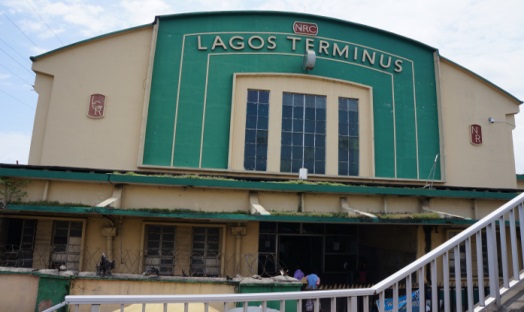

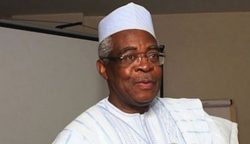
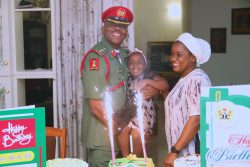




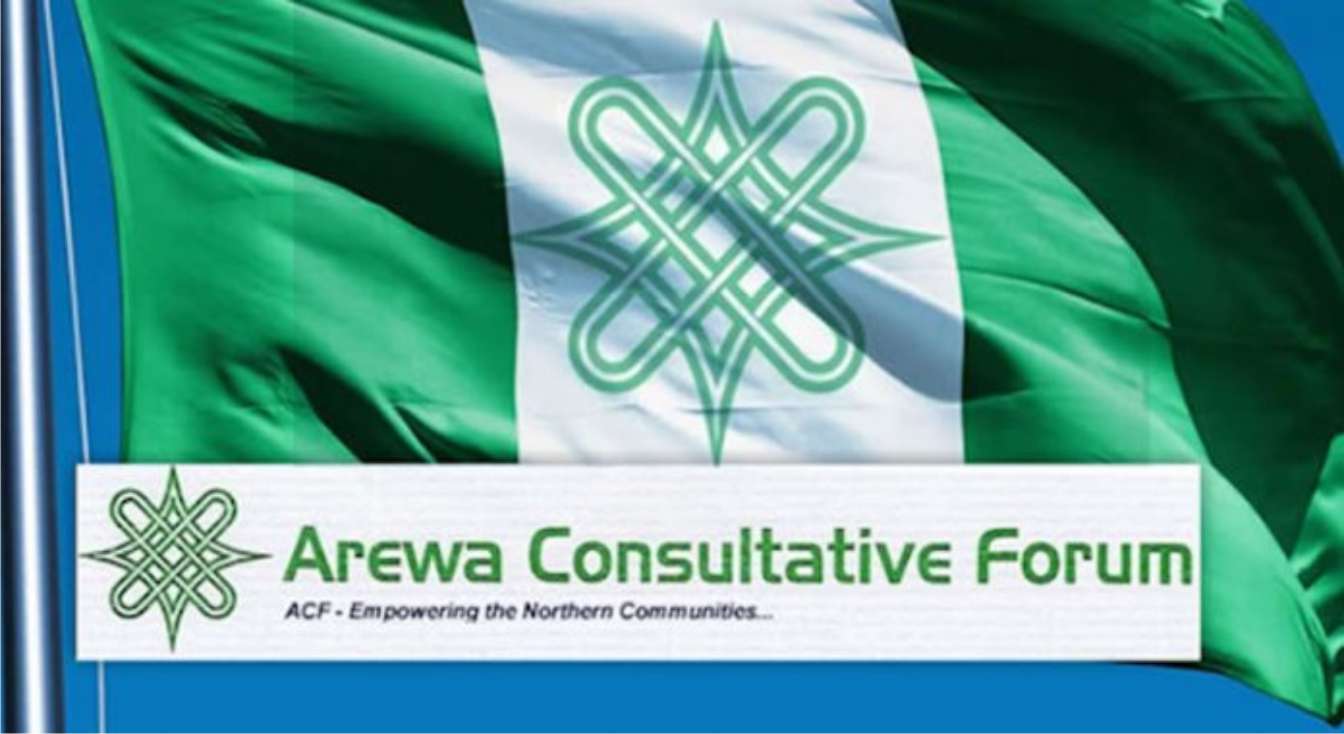
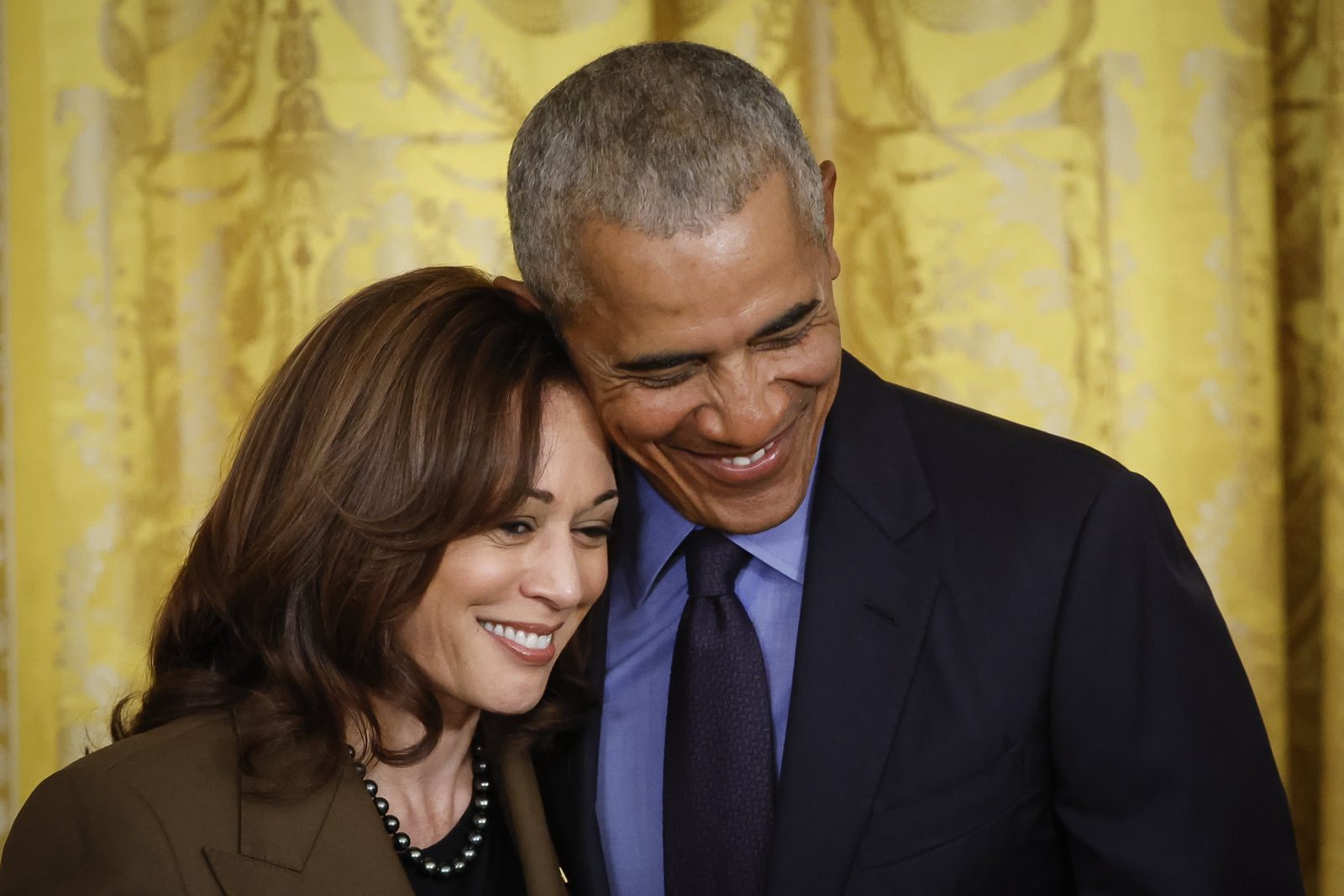


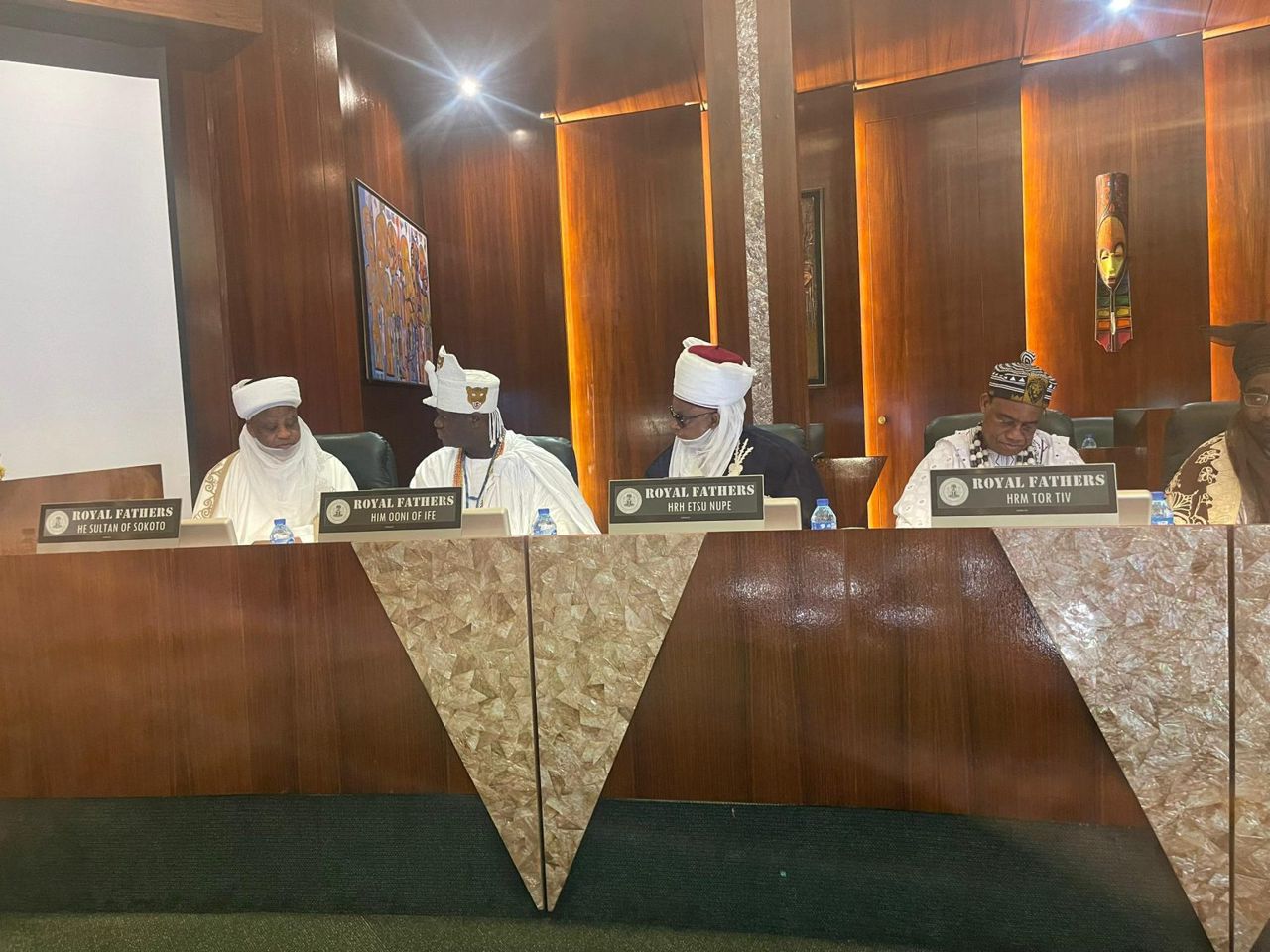



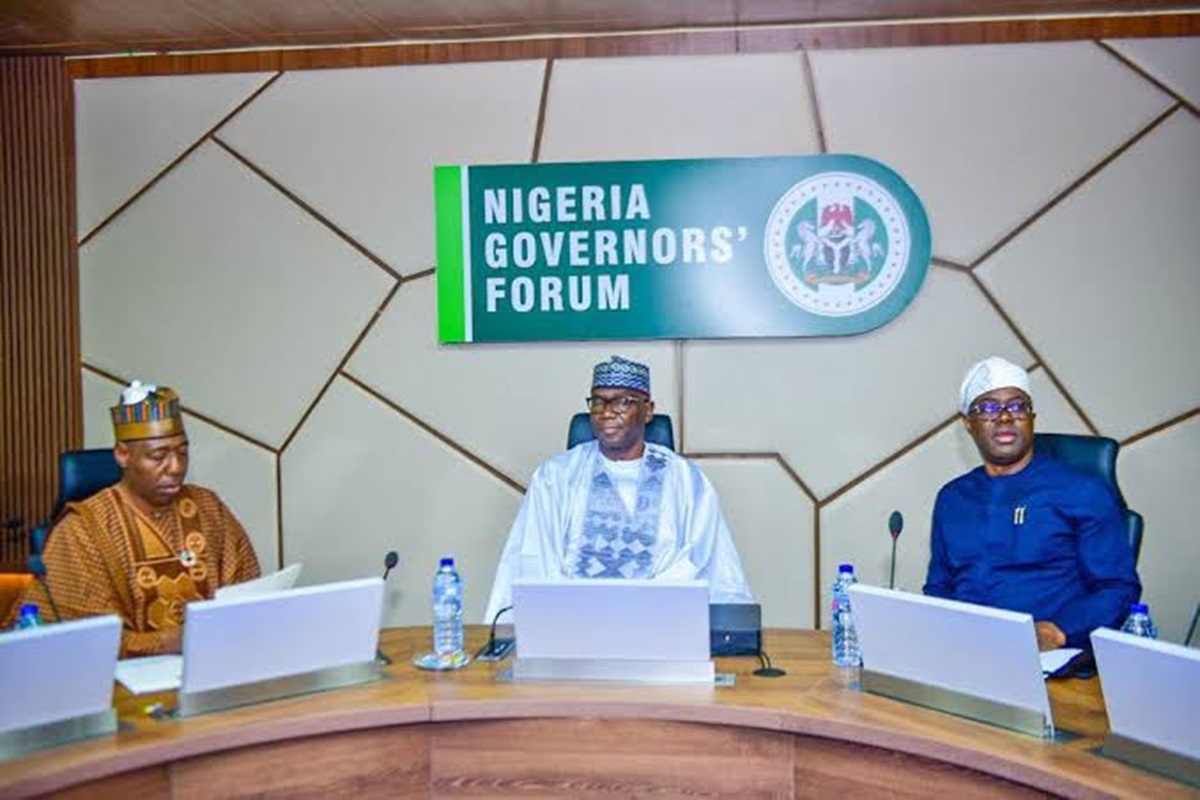
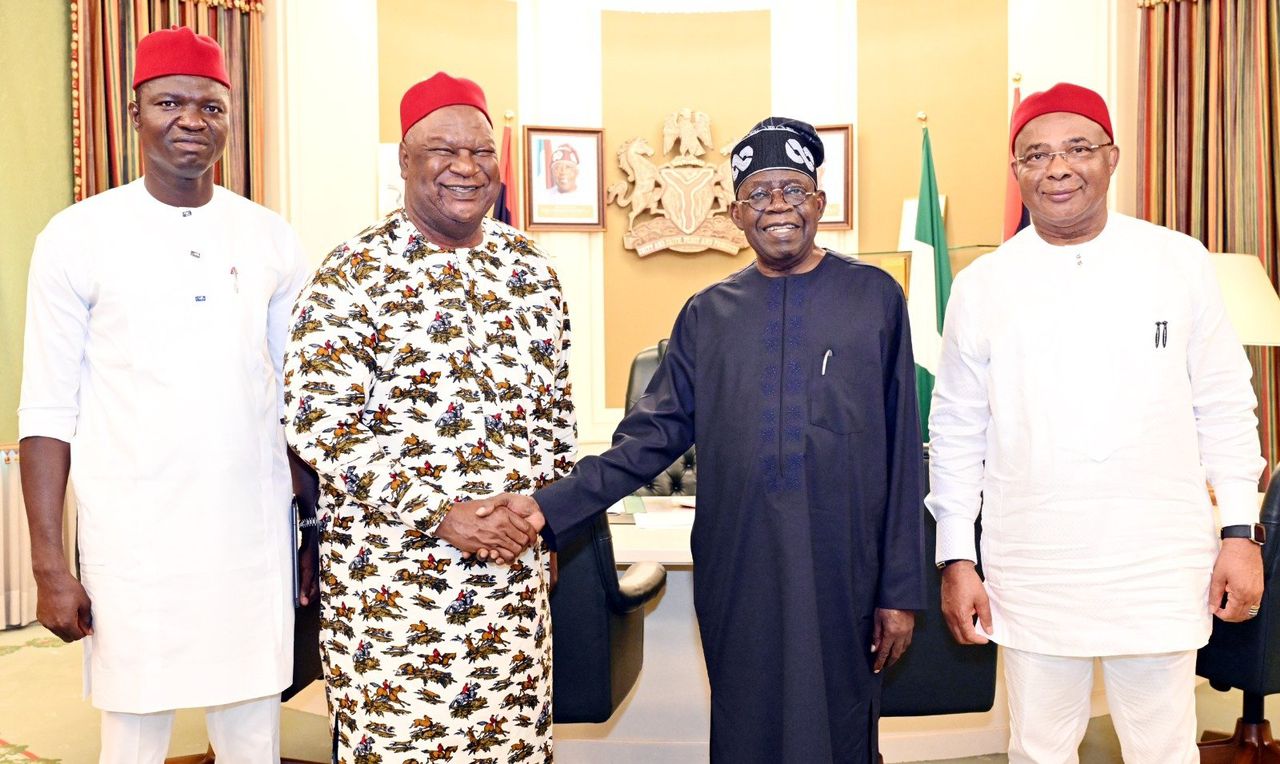

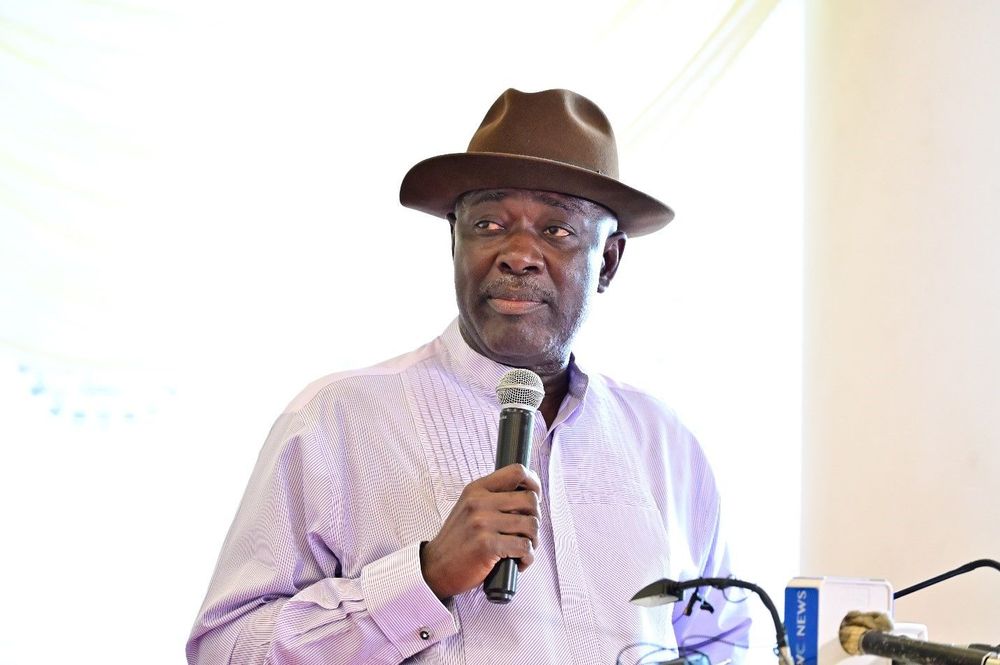


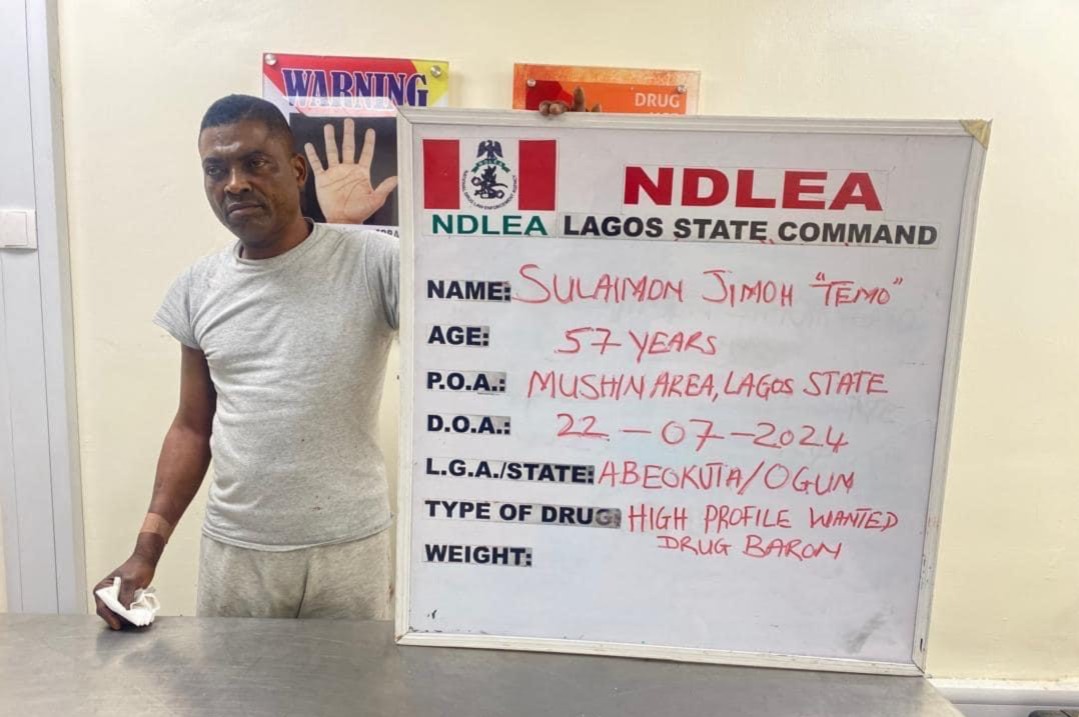

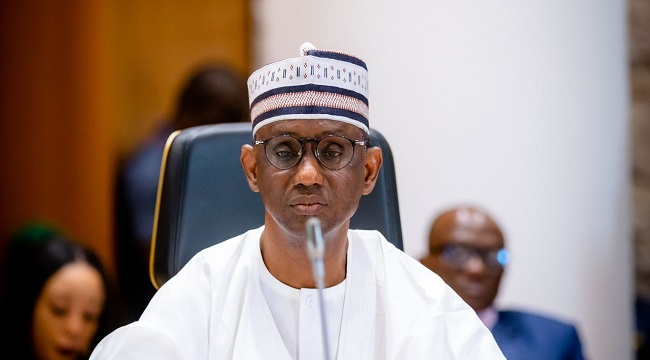
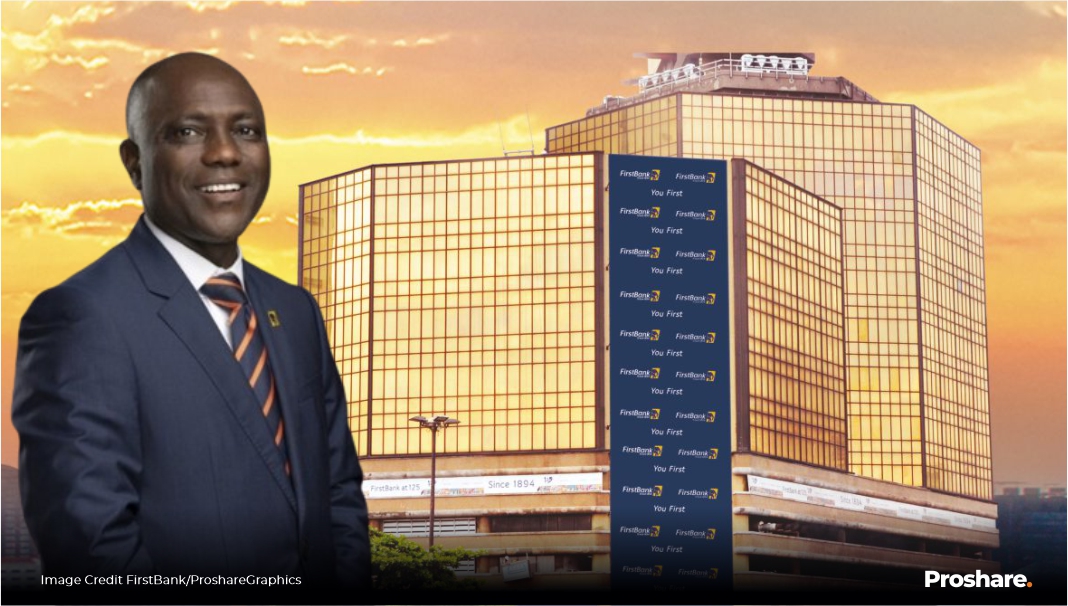
Leave a comment